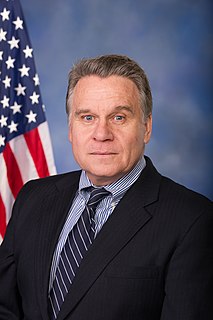A Quote by Mike Quigley
Unions have long championed measures to reduce social and economic inequality, and efforts to weaken the labor movement at both the state and federal level have successfully stalled any progress.
Related Quotes
Depression is a serious problem, but drugs are not the answer. In the long run, psychotherapy is both cheaper and more effective, even for very serious levels of depression. Physical exercise and self-help books based on CBT can also be useful, either alone or in combination with therapy. Reducing social and economic inequality would also reduce the incidence of depression.
Labor unions have a long history of benefitting all workers, even those who are not members of unions, because everyone's wages go up. If we don't increase membership - and membership in labor unions is going down because of the attacks against organized labor - it's something every single American, whether they're officially in a union or not, should be concerned about. It's a spiral. It's a weakening of the middle class and our economy can't sustain that.
When the wilderness movement emerged, it emerged separate from the issue of social inequality and the economic problems of survival. It was a preservationist ecology movement created by an occupying culture. Clearly, a wilderness movement started by Native Americans would not have had the same roots.
In less than a century we experienced great movement. The youth movement! The labor movement! The civil rights movement! The peace movement! The solidarity movement! The women's movement! The disability movement! The disarmament movement! The gay rights movement! The environmental movement! Movement! Transformation! Is there any reason to believe we are done?
The labor movement was the principal force that transformed misery and despair into hope and progress. Out of its bold struggles, economic and social reform gave birth to unemployment insurance, old age pensions, government relief for the destitute, and, above all, new wage levels that meant not mere survival but a tolerable life.
The Fed cannot reduce inequality on its own; far from it. This requires a concerted effort by the government, broadly speaking, to support a variety of efforts. These include things like raising the federal minimum wage, eliminating unfair restrictions on union organizing, increased fiscal spending on needed infrastructure with a condition that these jobs will be decent paying jobs. Of course, this is just the tip of the iceberg, and far from the question of the role of the Federal Reserve.
Proper training and federal supervision in state-federal partnerships are essential to both assuring constitutional rights and enforcing our immigration laws. Our Founding Fathers' concept of federalism does not prohibit such cooperation, and we have learned from experience that joint efforts work best.


































